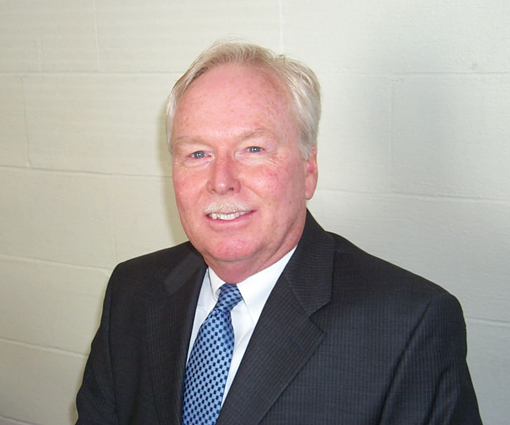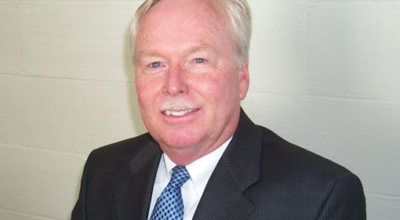Remembering September 11th
Published 9:28 am Monday, September 12, 2022
|
Getting your Trinity Audio player ready...
|
When the towers fell more than two decades ago we all knew we were watching history. If you’re old enough, you’ll likely remember the exact details of the moment where you heard the news.
I was still living in Wales at the time, seventeen years old and in the penultimate year of my secondary education at one of the last few public all-girls schools in the UK. Computer labs were a relatively new addition to the school and high-speed connectivity was still outside our grasp of understanding. Even still, the clunky dial-up internet had already allowed us kids to sidestep the keepers-of-information in many capacities, and the world was literally at our fingertips in a way no other generation before us could have preempted.
When the first aircraft crashed into the north tower of the World Trade Center in New York City at 8:45 a.m. I just happened to be in the room next to the senior student’s computer lab, probably trying to avoid going to class. I don’t recall my exact perspective on what I imagined The United States of America to be back then, time has a way of altering how we evaluate younger versions of ourselves. But what I can say without hesitation, is that I believed America was untouchable, and set apart from the rest of the world.
Girls were huddled around one of the small PC screens in the computer lab and everyone was silent. The girl in the seat would hit the refresh button every few minutes to ensure we were seeing the latest update as we tried to understand what we were witnessing. Words like “terrorism” and “suicide bomber” scrolled in front of our eyes. We’d grown up hearing about terrorism from the conflict in Northern Ireland, it was on our doorsteps but still felt distant. But even with our young naiveté we understood that we were watching a watershed moment in the history of western civilization. There are few events significant enough to cause the mass population to experience a simultaneous paradigm shift, but this was one. For that brief moment, immortal and immovable America felt human and frail. And the world felt darker for it.
In the days following, as we looked on from foreign shores, the world was humbled. We saw the best of humanity embodied in every day citizens. Stories of the extraordinary bravery and courage of first responders and emergency services came to light, the people of this great nation reminded the world of what it meant to be American, what it meant to be human. Now, more than 20 years on, in this time of great political division, we would do well to remember the importance of our common humanity and values and the need to stand together.
The next year, after I finished high school, I opted to take a gap year before starting college and boarded a plane to Las Vegas to backpack around post-9/11 America. I would imagine that travel changed significantly from before the terrorist attacks, but I’d never flown anywhere prior to know. Maybe Americans felt many differences in the aftermath, imperceptible to me as an outsider. Nevertheless, I should imagine that the following shock waves that hit the country and the slow but steady ripples that continued on long after were not dissimilar to the present moment. At present, the reality of a global pandemic has been accepted, but life has never really gone back to the way things were. For kids growing up in this era, post-pandemic America is their America, just as post 9/11 America is the only America I know.
Of course, in terms of specifics outcomes, there were sweeping changes to many internal structures. According to the University of Virginia’s Miller Center, the 9/11 attacks resulted in changes to the federal government and an expansion of executive power. The Department of Homeland Security was created, and the intelligence community was consolidated under the Director of National Intelligence. The USA Patriot Act expanded domestic security and surveillance, disrupted terrorist funding, and increased efficiency within the U.S. intelligence community. George W. Bush’s administration launched its War on Terror, which continues impact the Middle East to this day.
I may not sound like an American, but I can assure you I love this great land. Now integrated into American culture, it’s clear to me we’re still trying to make sense of how such a horrific and sophisticated plan could be executed without national security organizations perceiving there was even a threat. From that singular event we’re still grappling with questions thrown into the arena decades ago. How do we prevent future tragedies like this? What is national security worth to us in terms of privacy and data monitoring? How do we tailor international policy to protect national security? What is our global responsibility in the war against ideological extremism and terrorism?
I’m grossly under-qualified to offer answers to those questions. However, I do know a little about human nature. I think we all do.
Reporters, artists, editors, writers, photographers – we’re just story tellers. We observe, and then we tell. What I have observed is that our human capacity to learn and develop will always be a positive source of hope. The attacks on New York City shocked the Western world out of complacency, and forced us into recognizing that what we have is extraordinary, and worth protecting.
One of the most significant conclusions we should draw from the tragedy is that in the midst of suffering, there are always average people doing remarkable things. As we reflect on the anniversary of these events I would suggest that the stories of hope which emerged from the tragedy are actually patterns of human behavior, not rare one-off acts of heroism. These stories are evidence of good refusing to yield to evil and of brotherly love being stronger than discord.
They were dark days in our nation’s history, but that darkness made the light all the more clearly defined. American’s are at their best when times seem to be at their worst.
Researcher, Brene Brown once said “Our job is not to deny the story, but to defy the ending—to rise strong, recognize our story, and rumble with the truth until we get to a place where we think, Yes. This is what happened. And I will choose how the story ends.” What ending we now choose is largely determined by small choices day after day. If we focus on nothing else, let it be that each of us has a choice to exhibit the best of humanity every day, our deeds can be our tribute and memorial.





